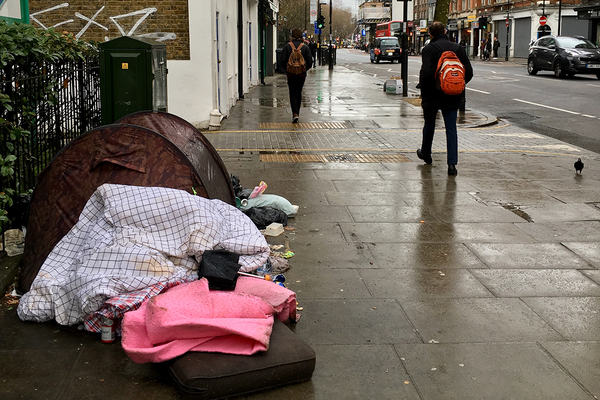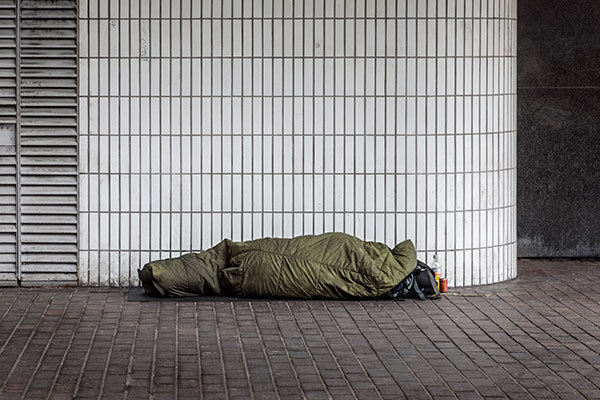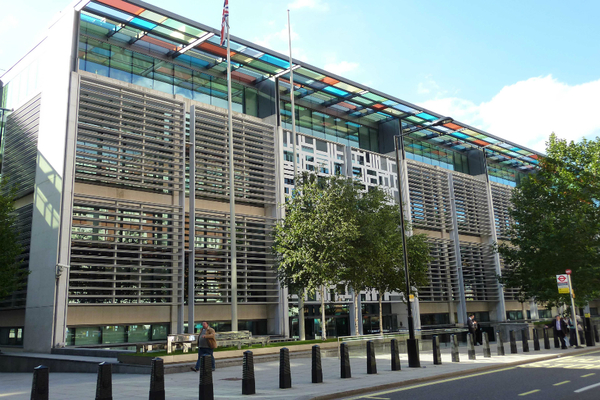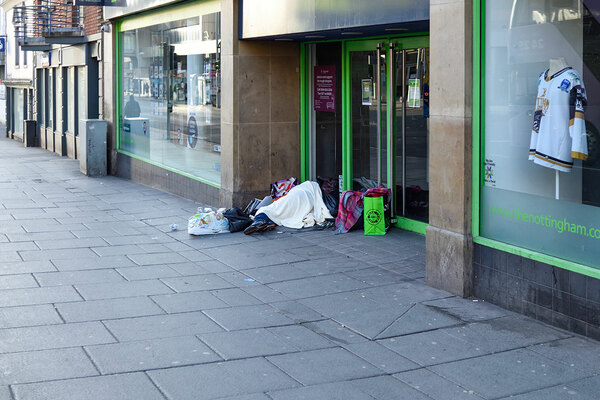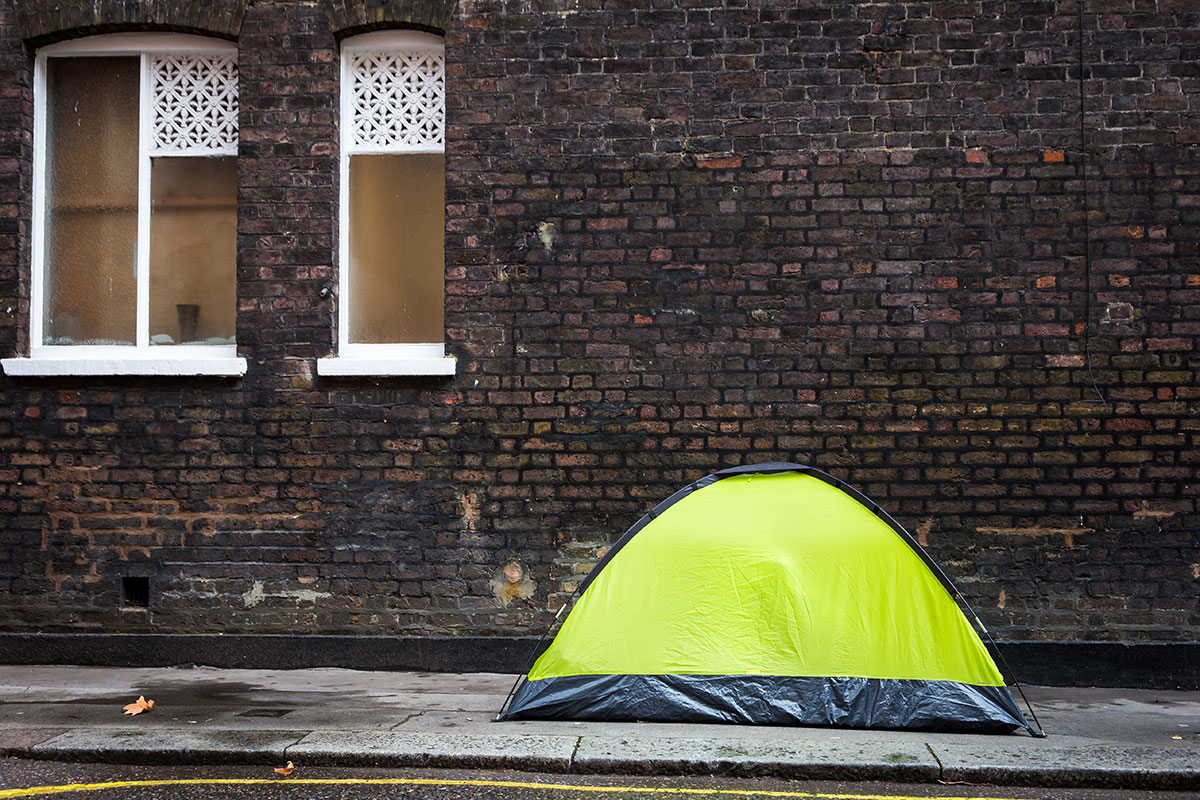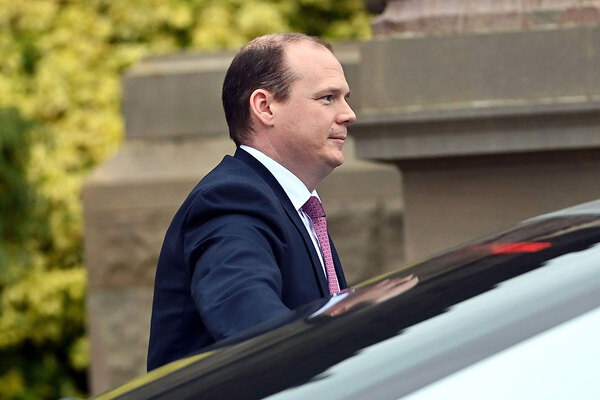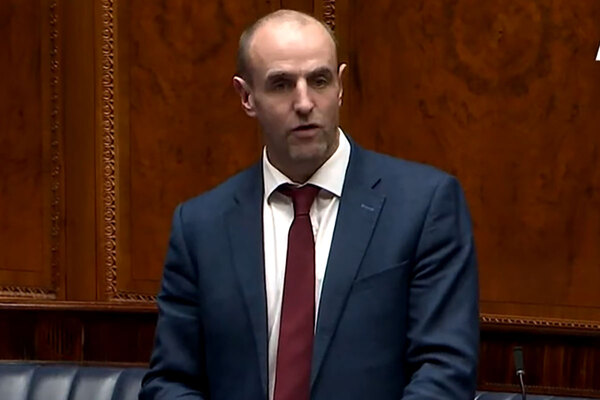You are viewing 1 of your 1 free articles
Councils still failing to accommodate rough sleepers despite court ruling
Some local authorities in England are still failing to provide emergency accommodation to rough sleepers despite a High Court ruling that found councils have the legal powers to help those who would not usually be eligible for support for the duration of the COVID-19 pandemic.
Housing charity Shelter, which was involved in the “landmark” High Court case, has warned that councils are leaving themselves open to legal challenge if they fail to accommodate people facing street homelessness while there is still a COVID-19 epidemic in England.
In March a High Court judge ruled that councils can lawfully provide accommodation to those who they would not normally provide with support, for example due to their immigration status, during the COVID-19 crisis.
The case involved a former asylum seeker, Timon Ncube, who found himself sleeping on the streets after his claim for asylum was refused.
He was initially denied access to emergency accommodation by Brighton and Hove Council because he had no recourse to public funds (NRPF), meaning he was ineligible for support because of his immigration status.
The judge ruled that councils can provide accommodation to those who would not normally be eligible for support under both:
- Section 138 of the Local Government Act 1972, which states that councils can provide accommodation and support during an emergency that involves danger to life
- Section 2B of the NHS Act 2006, which gives councils powers to provide emergency accommodation to improve the public health of people who live in their area
However, charities have said that they are still seeing councils turn away rough sleepers following the court ruling.
Steve Douglas, chief executive of St Mungo’s, said: “The Ncube judgement has resulted in an inconsistency in approach.
“Some local authorities have fully embraced the spirit of the judgement, whereas others are still reluctant to, or are unsure about what to do.”
Ruth Jacob, senior policy officer at Crisis, said that the judgement has provided “assurances” for local authorities that were already providing emergency accommodation to those not normally eligible for support. But she said that “there’s definitely still people falling through the gaps”.
Since March 2020, councils have been providing emergency accommodation such as hotels to rough sleepers and those facing street homelessness under the government-led initiative Everyone In.
However, charities have long warned that the scheme has not been underpinned by strong guidance or legal provisions, meaning the level of support offered has varied from council to council.
Jo Underwood, head of strategic litigation of Shelter, said the Ncube case means “there’s no reason to turn rough sleepers away on the basis they’re not eligible”.
While the Ncube case involved an individual who was not eligible for support due to their immigration status, Ms Underwood said it can also be applied to people who councils do not normally have a duty to support, for example because they do not have a local connection to the area or are not found to be in ‘priority need’.
Case study: ‘You immediately start to see things in a different prism when you’ve got nowhere to go’
Sam Goodwin (not his real name) approached a council in the North West for housing support in March as he feared he was soon to become street homeless.
When the COVID-19 pandemic first hit in early 2020 he was in the Philippines working for an education organisation based in China. Unable to return to his job in China due to the borders being closed, Mr Goodwin decided to spend the majority of 2020 volunteering in the Philippines supporting people who he said were facing “literal starvation” due to the loss of income from tourism. He said the traumatic nature of this work led him to start drinking.
“Being by myself in a hotel in the Philippines and just seeing horrible stuff every day, I just started drinking every day,” he said. “I didn’t really have a problem with alcohol before, I’d sort of save it for the weekend, but I had a few months, maybe from August 2020 to December where I was just drinking every day and obviously using up my savings quite quickly. So it got a bit much.”
Following the advice of friends and family, Mr Goodwin decided to fly back to the UK, where he is originally from, two days before Christmas. After a short period living with his sister, Mr Goodwin was left with no option but to check into an Airbnb.
During February he applied for 482 jobs, many of which he was overqualified for, but had no luck. He was also unable to access Universal Credit during this time due to having lived abroad. He then reached the point where he was no longer able to afford his Airbnb.
“While this public health emergency continues, anyone who needs it should be given access to emergency accommodation”
When Mr Goodwin approached the local council for help he was told they could not support him as he did not have a local address. A neighbouring council said they would provide him with emergency accommodation, but that he must leave his Airbnb and become homeless first.
On the morning Mr Goodwin moved out of his Airbnb he phoned this council and was told that they would phone him back later in the day with an offer of accommodation. Mr Goodwin waited in the park all day but did not receive a call from the council.
“It’s just pretty rubbish to be honest,” he said. “You immediately start to see things in a different prism when you’ve got nowhere to go and recharge your phone and nowhere to go and sit that’s comfortable.”
For the next three nights, Mr Goodwin was put up in a hotel by Shelter. Following intervention by Shelter’s legal team, the original council Mr Goodwin approached agreed to put him up in one of their hotels.
Mr Goodwin has now found a well-paid job, has stopped drinking and is hoping to move into his own place soon, however he said it is “overwhelming” thinking about what could have happened to him without Shelter’s intervention.
Robert Brown, solicitor at Shelter, said: “At Shelter, we’ve seen many people being denied help during the pandemic because they weren’t considered ‘in priority need’ – this man was no exception.
“We contacted the council on his behalf to let them know about the legal powers they have, which were identified by the Ncube case, and persuaded them to accommodate him. While this public health emergency continues, anyone who needs it should be given access to emergency accommodation.”
She said that the charity has had to threaten several local authorities with legal action after they failed to accommodate individuals since the judgement, and that “the cases haven’t got to court because councils realise it’s not something they can challenge successfully”.
Shelter has sent a briefing to all local authorities outlining the impact of the Ncube judgement on their services.
It states that it is Shelter’s belief that the judgement applies “for the duration of the pandemic, as determined by the World Health Organisation, and certainly while England has a coronavirus epidemic set out in the government’s alert levels”.
Earlier this week the UK’s COVID-19 alert level moved down from 4 to 3, however level 3 still means that “a COVID-19 epidemic is in general circulation”.
Ms Jacob said that a “much clearer message from central government” regarding Everyone In is still needed.
“I think the court case provided that clarity that local authorities do have the power to do something, but we haven’t seen that reiterated in central government messaging to say that local authorities should be continuing even now to provide emergency accommodation for everyone who is rough sleeping,” she said.
Mr Douglas added: “For some [councils] the reality is that they just do not have the finances available to meet the costs associated without additional central government support.
“Clarity on the policy, and consistency in its application across the country, is urgently required. And we urge the government to do what is needed to enable this.”
A Ministry of Housing, Communities and Local Government spokesperson said: “We have so far housed 37,000 people during the pandemic through our ongoing Everyone In initiative, and we expect councils to continue ensuring all rough sleepers are safely supported.
“We’re providing over £750m this year alone to tackle homelessness and rough sleeping.”
Sign up for our homelessness bulletin
Already have an account? Click here to manage your newsletters
